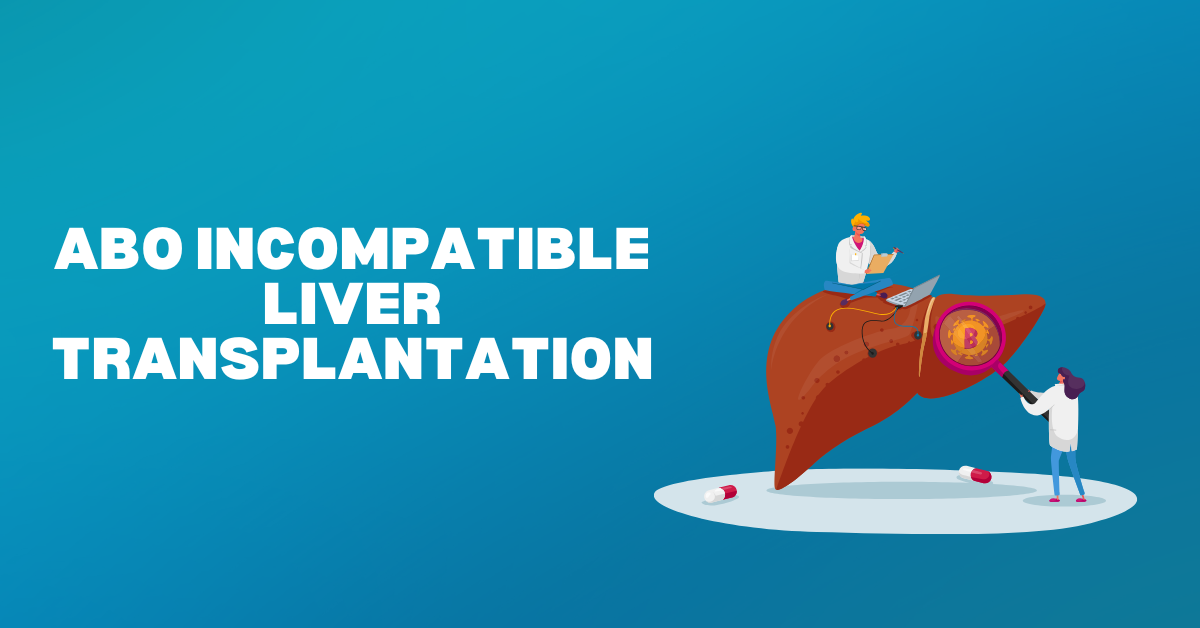As we all know, liver transplantation is a life-saving technique for individuals who are suffering from life-threatening liver disease. Before the new technology was introduced, liver transplantation would require compatibility between the liver donor’s and recipients’ blood types. However, a new procedure in liver transplantation or ABO-incompatible liver transplantation provides a favorable substitute for individuals who may not have a compatible donor available.
In this inclusive guide, we’ll be exploring the intricacies and depth of ABO-incompatible liver transplantation, delving into how it functions, who can be a liver donor, and its possible pros and cons.
Getting to Know ABO Incompatible Liver Transplantation:
In the modern procedure—ABO incompatible liver transplantation—the potential donor and the recipient don’t have to be the same blood type; for example, the donor blood type can be B and the recipient blood type O. This method enlarges the options of possible donors for the one who is suffering from prolonged and end-stage liver disease and requires a liver transplant, as it permits transplantation across blood type barriers. Unlike ABO-compatible transplants, where the donor and the recipient have to have similar blood types, ABO-incompatible liver transplants involve additional tactics to safeguard against immune rejection by the Best Liver Transplant Surgeon in Delhi NCR.
Let’s explore the mechanism behind it and how it works.
The success rate of ABO-incompatible liver transplantation relies on multiple key factors:
Preconditioning—before the transplant procedure, the recipients undergo a process known as preconditioning, which requires elimination of antibodies from their bloodstream to decrease the chances of rejection.
Desensitization—the liver recipients obtain medications, such as intravenous immunoglobulin (IVIG) and rituximab, to subdue their immune system and avert antibody-mediated rejection.
Plasmapheresis—Plasmapheresis, also known as plasma exchange, is performed to eliminate circulating antibodies from the recipient’s bloodstream to an adequate limit, reducing the danger of rejection.
Immunosuppression—recipients obtain immunosuppression medications after the transplant to avert rejection and encourage acceptance of the receiver’s liver.
Who is eligible to contribute as a donor?
In ABO-incompatible liver transplantation, the donor and the recipient can have different blood groups. However, particular factors must be cautiously considered when looking for an appropriate donor.
Compatibility: While the donor and recipient may have different blood types, aspects such as the size of the liver, bodily structure, and general health must still be cautiously assessed to safeguard a positive transplant. A donor must be above 18 years of age and be a biological relative of the recipient.
Medical Assessment: All possible donors undergo an inclusive medical assessment, which comprises liver function examinations, imaging studies, and psychosocial assessments to evaluate their appropriateness for donation.
Pros and Cons of Transplantation
Pros/Benefits
• More Donor Choices—This type of transplant permits recipients to obtain a liver from someone who has a different blood group, resulting in more potential individuals qualifying as donors. This can assist in eliminating the wait period.
• Quick Procedure for Crucial Cases—for the patients whose health are crucial and cannot wait longer, this type of transplant can provide faster solutions.
Cons/Challenges of the Transplant
- The recipient of the organ transplant may develop an aversion reaction towards the organ and may need to be monitored closely while using an organ rejection immunosuppressant therapy for life.
- These drugs pose a serious risk of contracting infections, high blood pressure, kidney failure and other injuries of grave nature due to the immunosuppressive refractive nature of these medications.
- The number of available organs is insufficient relative to the demand for organ transplants which leads to a staggering number of patients waiting for organ transplants, some dying in the waitlist.
- The surgery is expensive and requires consistent post-operative care, which can be a lot of stress. It also comes with the potential to incur anxiety and depressive disorders.
Conclusion
In ABO-incompatible Best liver transplant in Delhi NCR, it has become a crucial option for patients who are in dire need of a transplant but can’t find a potential donor. By permitting patients to obtain a liver from somebody who has a different blood type, this procedure increases the number of donors and offers hope to those in dire need of a liver transplant.
However, it is vital to prudently select patients, prepare them suitably before the transplantation, and carefully monitor them afterwards to ensure that the transplant works well in the longer term. Through sustained examination and teamwork, we can expand ABO-incompatible transplants, providing more people with a chance to live a longer and healthier life.



